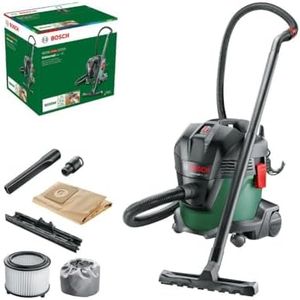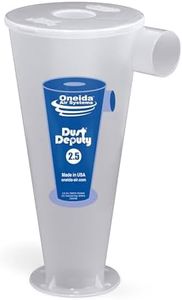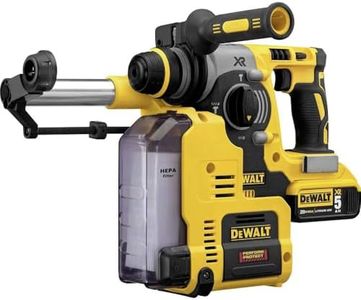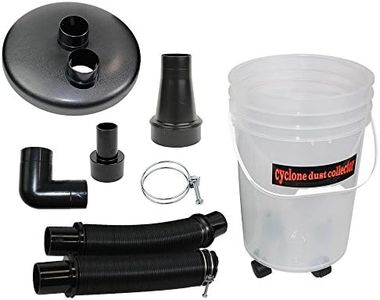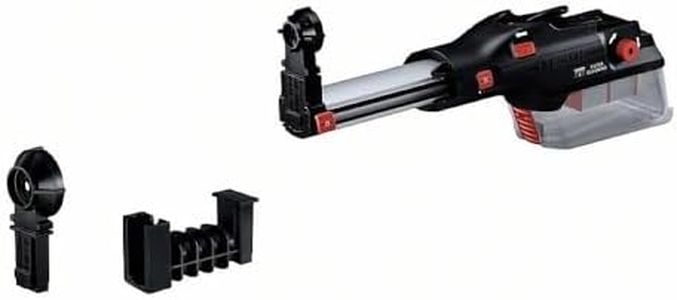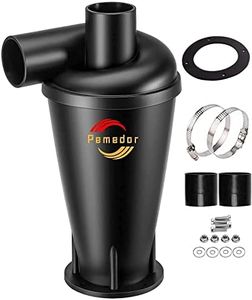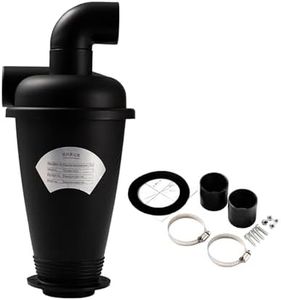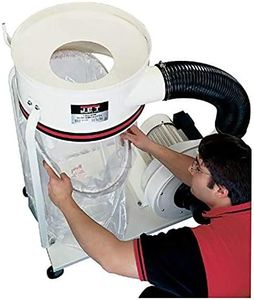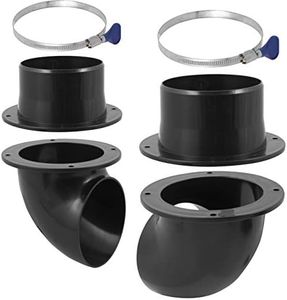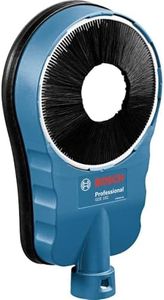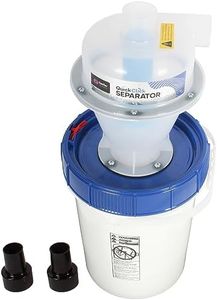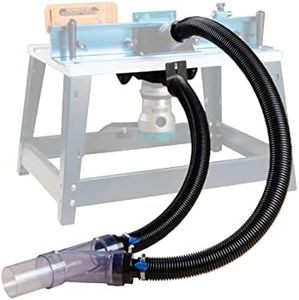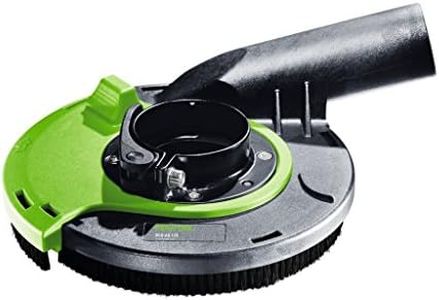We Use CookiesWe use cookies to enhance the security, performance,
functionality and for analytical and promotional activities. By continuing to browse this site you
are agreeing to our privacy policy
10 Best Dust Collectors
From leading brands and best sellers available on the web.By clicking on a link to a third party's website, log data is shared with that third party.
Buying Guide for the Best Dust Collectors
Choosing the right dust collector can make a big difference in keeping your workspace safe, clean, and efficient. Dust collectors are essential in workshops and industrial settings for controlling dust and airborne particles, which can cause health problems and damage equipment. To pick the best dust collector for your needs, think about the main aspects of your workshop, such as the size of your space, the types of tools you use, and how often you generate dust. Understanding the important features and specifications will help you find a dust collector that fits your needs and keeps your area tidy.Airflow Capacity (CFM)Airflow capacity, usually measured in cubic feet per minute (CFM), tells you how much air the dust collector can move. This is important because a higher airflow means the collector can remove dust more effectively from larger machines or bigger areas. Small workshops with only one or two machines can work well with lower CFM ratings, typically between 300-700 CFM. Medium-sized shops using several machines at once might need something in the 700-1200 CFM range, while commercial or industrial spaces require units with even higher CFM values, often 1500 or more. Consider the size of your workspace and how many tools you'll run at the same time to choose a collector that suits your needs.
Filter Type and EfficiencyThe filter is responsible for trapping dust particles before the air is released back into your workspace. Filters come in different types and efficiencies, such as standard cloth bags or more advanced HEPA filters. Lower-efficiency filters may only capture larger dust particles, while HEPA filters and fine cartridge filters can trap very tiny, harmful dust. For general woodworking, basic filters might be enough, but if you deal with fine dust or want to minimize allergens, opt for higher efficiency options. Pick your filter based on the dust your work produces and your need for clean, healthy air.
Collection CapacityCollection capacity refers to how much dust and debris the collector can hold before it needs to be emptied. This is usually measured in gallons or liters. Small bins (under 20 gallons) are suitable for hobbyists or small shops, while larger bins (20-50 gallons or more) are better for busy workshops. If you don’t want to stop your work often to empty the collector, choose a model with greater capacity. Your choice should factor in how much dust your activities generate and how often you’re willing to empty the container.
Mobility and SizeMobility determines how easy it is to move the dust collector around your workshop. Some dust collectors are portable with wheels, making them easy to move between different machines, while others are stationary and designed to be fixed in one place. Smaller, portable units are great if you have limited space or need to move the collector regularly. Larger, stationary models are better for big workshops with dedicated dust collection systems. Think about your workspace and how you plan to use the dust collector to decide which option works best for you.
Noise LevelNoise level is measured in decibels (dB) and tells you how loud the dust collector operates. Lower noise levels make for a more comfortable work environment, especially if you'll have the machine running frequently or for long periods. Quiet models are ideal for home workshops or shared spaces, while higher noise might not be as much of an issue in large, industrial settings. Consider your tolerance for noise and the impact on your work environment when selecting a dust collector.
Ease of MaintenanceEase of maintenance refers to how simple it is to empty the collector, change filters, and keep the system running smoothly. Some models have tool-free access to filters and bins, which saves time and hassle. If you prefer a hassle-free experience, look for dust collectors designed for easy cleaning and filter replacement. Your willingness to spend time on maintenance should help you prioritize this feature when making your selection.
